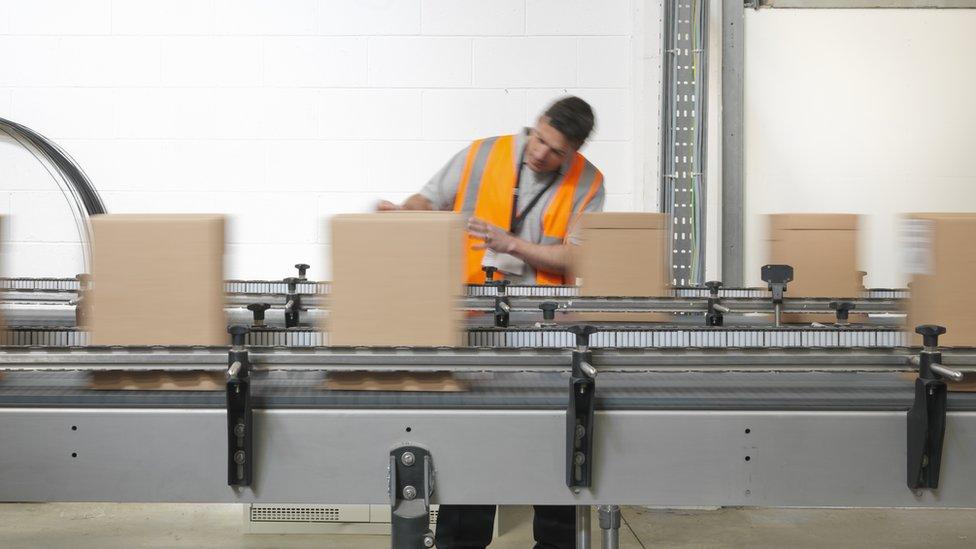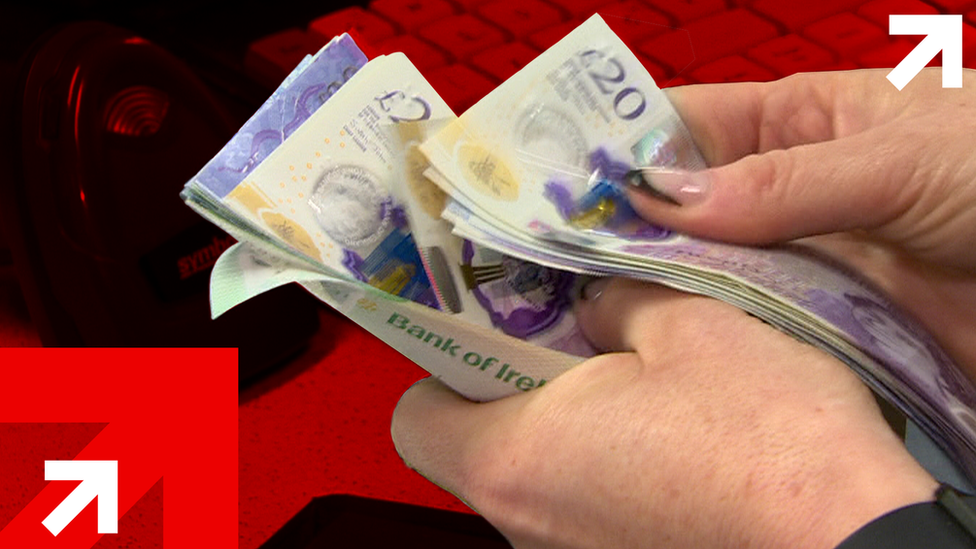Ulster Bank survey: NI private sector shrinks but businesses optimistic
- Published
- comments

Output from Northern Ireland's private sector continued to shrink in January but there were tentative signs of optimism.
The details are contained in Ulster Bank's regular business survey.
The monthly survey of about 200 firms is considered a reliable indicator of the health of the private sector economy.
It suggests firms experienced a drop in new orders but are continuing to hire workers.
Official figures suggest that Northern Ireland entered a recession in the third quarter of 2022 and the Ulster Bank survey points to a continuing downturn since then.
The January survey recorded falling output in manufacturing, construction and services.
However, retail experienced growth after a long period of falling activity.
Ulster Bank chief economist Richard Ramsey said the delivery of £600 in energy support for NI households in the second half of January may have bolstered retail.
He also pointed to the relatively robust performance of the Republic of Ireland economy: "Unlike Northern Ireland and the UK, the Republic of Ireland is neither in nor flirting with recession and cross-border shopping is providing some valuable support."
Mr Ramsey said that although output was still falling the pace of decline appears to have eased.
Growing optimism
"Both business activity and incoming orders fell for their ninth successive month, although the rates of decline slowed in January."
Some businesses also appear to be growing in optimism about the year ahead after what Mr Ramsey called the "extreme pessimism" seen in 2022.
Manufacturers and retailers were at their most optimistic in almost a year and only the construction sector expected further falls in output in 12 months time.
On Friday, official figures suggested the UK as a whole narrowly avoided falling into recession in 2022 after the economy saw zero growth between October and December.
This was despite a sharp 0.5% fall in economic output during December, partly due to strike action, the Office for National Statistics said.
Chancellor Jeremy Hunt said the figures showed "underlying resilience" but added "we are not out of the woods".
The Bank of England still expects the UK to enter recession this year, but it thinks it will be shorter and less severe than previously forecast.
Related topics
- Published12 December 2022

- Published7 February 2023
